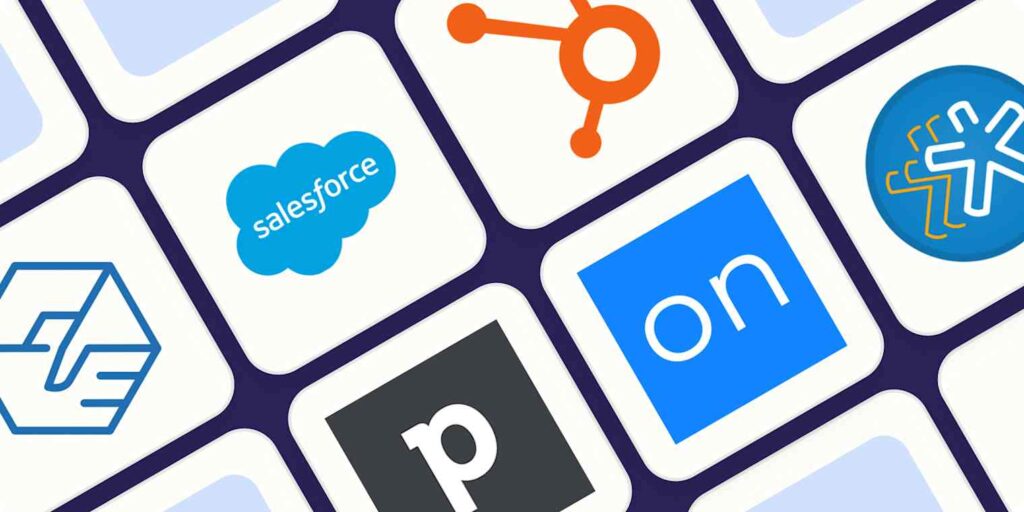Top CRM Software for Small Businesses in 2025
As a startup or small business, your customer list is your most valuable asset — and your CRM (Customer Relationship Management software) is what keeps it alive and organized.
But not all CRMs are created equal. Some are bloated with enterprise features you’ll never use. Others are so lightweight they fall apart as you grow.
Here’s a no-fluff guide to the top CRM tools for small businesses in 2025 — with recommendations based on real-world startup needs, not marketing hype.
What to Look for in a Small Business CRM
Before diving into options, define what matters most to your business.
Prioritize CRMs that offer:
- Easy setup and onboarding (no IT team needed)
- Contact and deal tracking
- Sales pipeline management
- Email integration
- Task reminders and follow-ups
- Reporting that makes sense to non-analysts
Bonus points for:
- Automation
- Integration with tools like Slack, Gmail, Stripe
- Affordable pricing tiers
1. HubSpot CRM (Free + Paid Plans)
Best for: Startups that want to scale without switching CRMs
Why it stands out:
- Robust free plan
- Intuitive UI, easy to onboard
- Includes email tracking, pipeline views, and basic automations
Pricing: Free plan includes 1M contacts; paid plans start at $20/month per seat
Pros:
- Built-in marketing, sales, and service tools
- Grows with your team
- Great documentation and community
Cons:
- Advanced features locked behind steep upgrade tiers
- Can get expensive quickly if you scale fast
2. Pipedrive
Best for: Sales-focused teams that need a visual pipeline
Why it stands out:
- Drag-and-drop deal stages
- Activity-based selling model
- Simple automation for tasks and follow-ups
Pricing: Starts at $14.90/month
Pros:
- Focused, clean interface
- Great mobile app
- Built-in calling and email sync
Cons:
- Less useful for marketing workflows
- Add-ons (like reporting or lead gen) cost extra
3. Zoho CRM
Best for: Budget-conscious businesses that still want features
Why it stands out:
- Deep feature set for low cost
- Custom dashboards and workflows
- Native integration with Zoho suite (Books, Desk, Campaigns)
Pricing: Free for up to 3 users; paid starts at $14/month
Pros:
- Strong automation and AI assistant
- Email campaigns + sales tools under one roof
Cons:
- Interface feels dated
- Steeper learning curve
4. Freshsales (by Freshworks)
Best for: Teams that want a clean, modern CRM with built-in phone/email
Why it stands out:
- Contact scoring, pipeline view, and built-in telephony
- Visual workflows for automation
- Fast setup
Pricing: Free for up to 3 users; paid starts at $15/month
Pros:
- Easy to get started
- Includes chat and lead capture
- Good for customer support + sales combo
Cons:
- Not as customizable as HubSpot or Zoho
- Less marketing functionality
5. Streak CRM (Gmail-Based)
Best for: Founders who live in Gmail
Why it stands out:
- Runs entirely inside your Gmail inbox
- Great for solo founders, consultants, or tiny teams
- Track deals, set reminders, and build pipelines without leaving your inbox
Pricing: Free for personal use; paid starts at $15/month
Pros:
- No new platform to learn
- Perfect for freelancers, solo consultants, or B2B founders
- Fast setup
Cons:
- Gmail-only (no Outlook support)
- Limited features compared to full CRMs
6. Less Annoying CRM
Best for: Startups who hate CRMs
Why it stands out:
- Simple UI, flat pricing, zero learning curve
- Great for non-tech founders or solo operators
- Includes calendar, task reminders, and contact tracking
Pricing: $15/month, all features included
Pros:
- No hidden pricing
- Fantastic customer support
- Built to not be overwhelming
Cons:
- No built-in email marketing
- Not ideal for complex sales workflows
7. Airtable (CRM Template)
Best for: Teams who want a flexible, DIY CRM
Why it stands out:
- Customizable base that can be tailored to sales, investor tracking, hiring
- Easy to use and visually satisfying
- Great for early-stage teams managing multiple relationship types
Pricing: Free for small teams; paid starts at $12/month
Pros:
- Drag-and-drop UX
- Tons of templates
- Integrates with Zapier, Slack, Gmail
Cons:
- Not a full CRM “out of the box”
- Requires setup + maintenance
Choosing the Right CRM for Your Stage
| Business Stage | Best CRM Picks |
| Solopreneur / Pre-launch | Streak, Airtable, Less Annoying |
| Small team (2–5) | Pipedrive, Freshsales, Zoho |
| Growing team (6–20) | HubSpot, Zoho, Freshsales |
| Multi-channel sales & marketing | HubSpot, Zoho CRM Plus |
Pro Tips for CRM Success
- Start simple, then grow. You don’t need every feature day one — but you do need buy-in from your team.
- Set up workflows. Automate follow-ups, reminders, and lead nurturing early.
- Clean your data. A messy CRM is worse than no CRM.
- Make CRM hygiene a habit. Assign owners, define fields, and build checklists into onboarding.
Conclusion
Your CRM isn’t just a tool — it’s your growth infrastructure. Pick one that matches your stage, use it daily, and make it part of your startup’s operating system.
👉 Download our CRM Evaluation Checklist to compare tools, map your needs, and get buy-in from your team.





